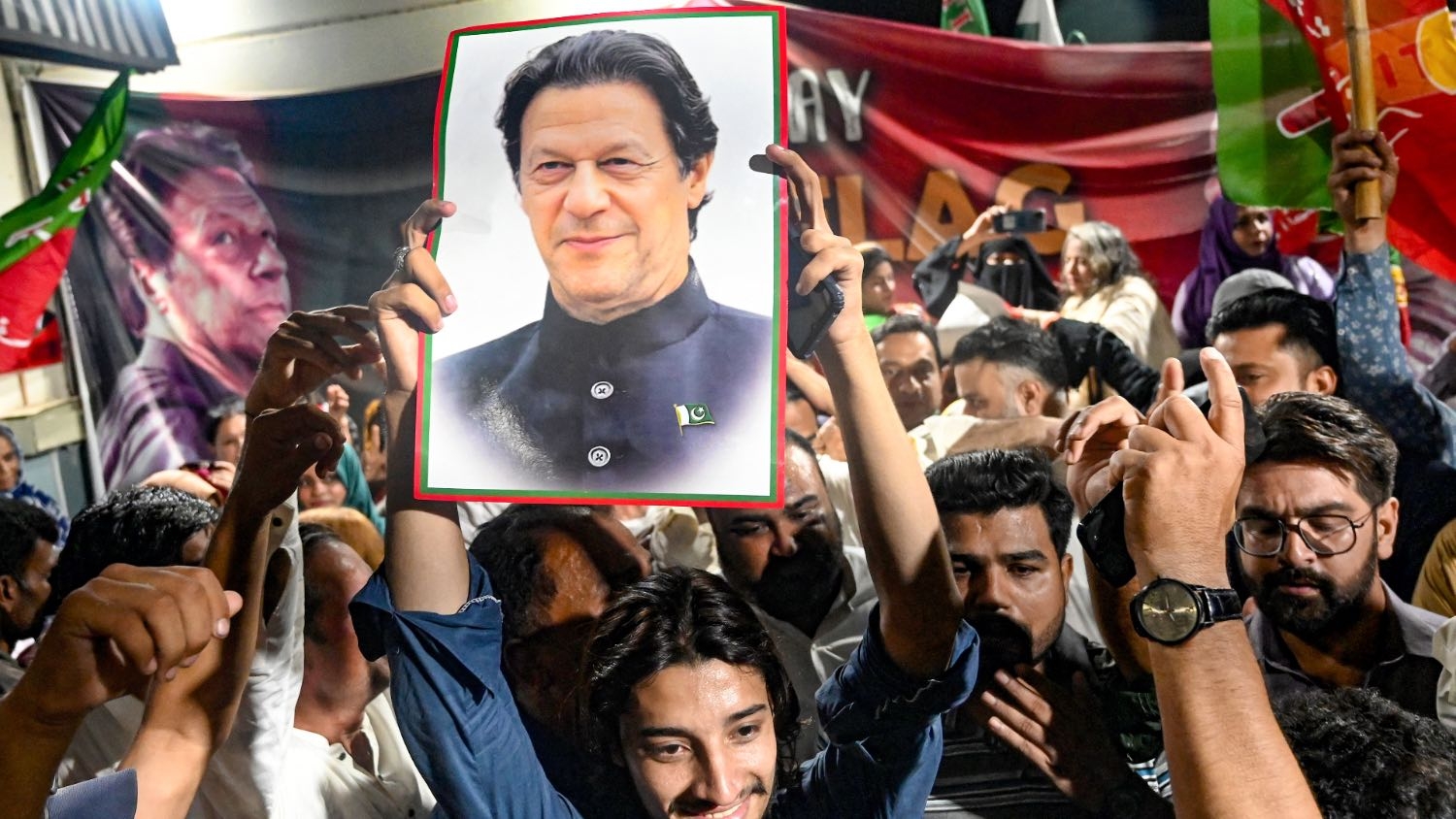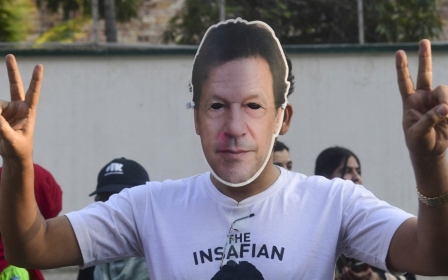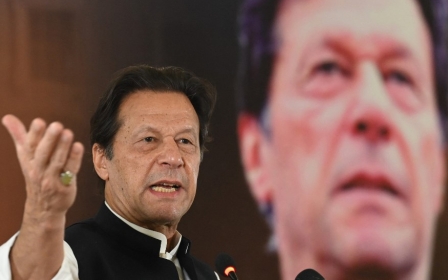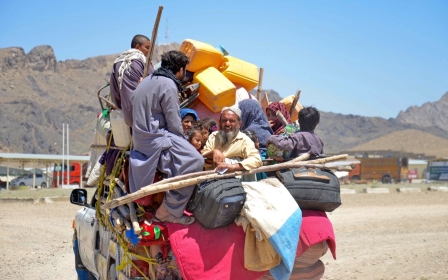UN experts call for Pakistan's Imran Khan to be released from 'arbitrary detention'

A group of United Nations experts said in a statement on Monday that former Pakistani Prime Minister Imran Khan's detention is both arbitrary and in contravention of international law, with the group calling for his release.
The UN Working Group on Arbitrary Detention said in its statement that the "appropriate remedy would be to release Mr Khan immediately and accord him an enforceable right to compensation and other reparations, in accordance with international law".
"Mr Khan’s detention was arbitrary [sic] because it resulted from his exercise of fundamental rights and freedoms, including the right to freedom of opinion and expression, the right to political participation and the right to freedom of association," the group said.
In January, Khan was sentenced to 10 years in prison for allegedly leaking state secrets, a sentence that was served on top of a three-year jail term he was already serving since last August.
The conviction occurred ahead of the country's national elections.
New MEE newsletter: Jerusalem Dispatch
Sign up to get the latest insights and analysis on Israel-Palestine, alongside Turkey Unpacked and other MEE newsletters
Throughout the trials, Khan has maintained his innocence and said that the charges were politically motivated and driven by Pakistan's influential army in collaboration with his political opponents.
Khan was alleged to have violated the Official Secrets Act when he disclosed a secret diplomatic cable, dubbed "the cipher". The cable was sent by Pakistan's embassy in Washington in March 2022. Khan reportedly later lost possession of the diplomatic cable.
Khan had said it contained a threat from the US to topple his Pakistan Tehreek-e-Insaf (PTI) government.
Khan said the cable effectively said "all will be forgiven if Imran Khan is removed from power". Khan was removed from his position as prime minister in a no-confidence vote in April 2022.
Last month, the former prime minister was acquitted of the state secrets conviction, however, he continues to remain in jail because of a conviction in which a court ruled his marriage was unlawful.
In a written response to the media organisation Zeteo in May, Khan said he was being confined "in what is referred to as a death cell – a small, isolated space typically reserved for terrorists", adding that he has been subject to solitary confinement.
He is currently imprisoned in Adiala Jail in the city of Rawalpindi.
While Khan was unable to run in this year's elections himself, candidates running as independents backed by his party won the highest number of seats. However, the Pakistan Muslim League-Nawaz (PML-N) and Pakistan Peoples Party (PPP) were able to form a coalition, giving them enough seats to form a coalition government.
In its statement, the UN working group said that members of the PTI party were arrested and tortured during the election cycle, and there was "widespread fraud on election day, stealing dozens of parliamentary seats".
Pakistan's election commission denies there were any irregularities in the election.
Middle East Eye delivers independent and unrivalled coverage and analysis of the Middle East, North Africa and beyond. To learn more about republishing this content and the associated fees, please fill out this form. More about MEE can be found here.




